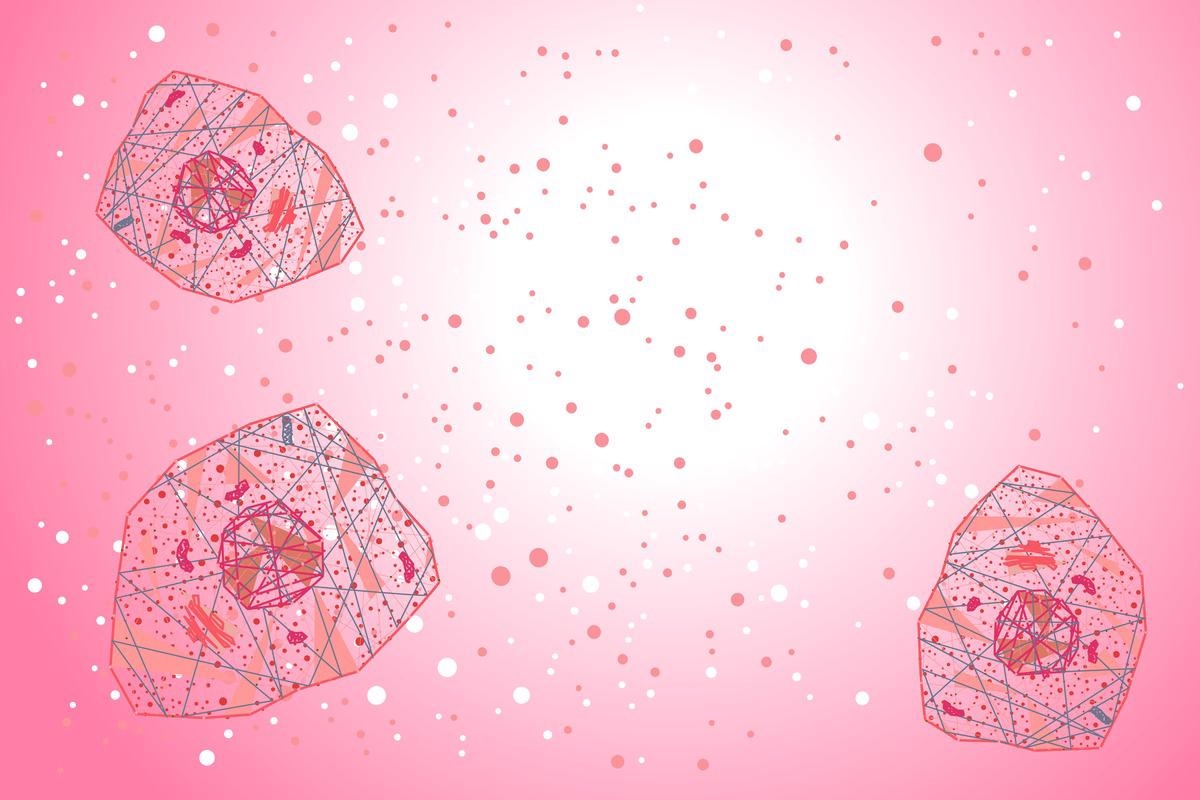A new study has investigated the efficacy of two multi-kinase inhibitors, olverembatinib and ponatinib, in inhibiting severe acute respiratory syndrome coronavirus 2 (SARS-CoV-2) omicron-mediated cytokine release in human peripheral blood mononuclear cells.
Both drugs have shown high inhibitory potency at low nanomolar concentrations.
 Study: Olverembatinib inhibits SARS-CoV-2-Omicron variant-mediated cytokine release. Image Credit: WhiteDragon/Shutterstock
Study: Olverembatinib inhibits SARS-CoV-2-Omicron variant-mediated cytokine release. Image Credit: WhiteDragon/Shutterstock
The study is currently available on the bioRxiv* preprint server.
Background
Hyper-inflammation is one of the major hallmarks of coronavirus disease 2019 (COVID-19), observed in about 15-20% of individuals with severe SARS-CoV-2 infection. The condition is characterized by excessive production of cytokines, followed by damages to the respiratory tract, and respiratory failure.
Regarding virus-induced cytokine release, studies have shown that the N-terminal domain (NTD) of the SARS-CoV-2 spike protein binds to certain host receptors, including C-type lectins, to trigger the release of cytokines in monocytes and peripheral blood mononuclear cells. Thus, therapeutic agents that can inhibit viral NTD-mediated cytokine release are expected to play a vital role in reducing COVID-19 severity.
In the current study, the scientists have investigated the efficacy of two multi-kinase inhibitors, namely olverembatinib and ponatinib, in inhibiting omicron NTD-mediated release of cytokines in human peripheral blood mononuclear cells.
Ponatinib is a clinically-approved drug for the treatment of chronic myelogenous leukemia, which is known to inhibit the spike S1 domain-mediated cytokine release in peripheral blood mononuclear cells.
Olverembatinib is a multi-kinase inhibitor. This drug is structurally similar to ponatinib and currently under clinical investigation.
According to the available literature, the viral spike-mediated cytokine release in peripheral blood mononuclear cells requires several host cell protein kinases, including JAK1, EPHA7, IRAK1, MAPK12, and MAP3K3. Given the vital role played by protein kinases in cytokine release, scientists have aimed to study the therapeutic potential of these multi-kinase inhibitors in SARS-CoV-2 infections.
Important observations
The heavily mutated omicron variant of SARS-CoV-2 contains more than 25 mutations in the spike protein. About 30% of the spike mutations are specifically present in the NTD. The scientists aimed to investigate whether omicron NTD mutations increase its ability to release cytokines.
They stimulated peripheral blood mononuclear cells with the NTD of the wildtype SARS-CoV-2 infection, as well as the delta, and omicron variants. The findings revealed that the omicron NTD has similar efficacy as the wildtype and delta viruses in activating cells and releasing pro-inflammatory cytokines, including interleukin-1beta (IL-1β), IL-6, and tumor necrosis factor (TNFα). These findings indicate that the omicron NTD mutations do not improve its ability to release cytokines.
The experiments conducted in the presence of olverembatinib and ponatinib revealed that both drugs significantly inhibit omicron NTD-mediated release of all tested cytokines including IL-10, IL-6, IL-8, IL-1beta, TNF, CCL2, and granulocyte-macrophage colony-stimulating factor (GM-CSF). Both drugs effectively inhibited the cytokine release at low nanomolar concentrations, with olverembatinib showing the highest level of inhibition.
Regarding protein kinases, olverembatinib exhibited high efficacy in inhibiting almost all protein kinases that were predicted to be vital for the NTD-mediated release of cytokines. This finding indicates that the kinase-inhibiting ability of olverembatinib is essential for blocking SARS-CoV-2-mediated cytokine release.
Study significance
The study describes the therapeutic potency of two multi-kinase inhibitors, olverembatinib and ponatinib, which effectively block SARS-CoV-2 spike NTD-mediated release of pro-inflammatory cytokines in myeloid cells by suppressing the activity of host protein kinases. The study has also evaluated the efficacy of a clinically-approved inhibitor of Janus kinase (JAK), namely baricitinib, which has shown limited ability in inhibiting cytokine release.
Given the study findings, the scientists suggest that both olverembatinib and ponatinib should be regarded as potential therapeutic agents in preventing the occurrence of a “cytokine storm” and associated lung damage in moderate-to-severe COVID-19 patients.
*Important notice
bioRxiv publishes preliminary scientific reports that are not peer-reviewed and, therefore, should not be regarded as conclusive, guide clinical practice/health-related behavior, or treated as established information.
- Chan M. (2022). Olverembatinib inhibits SARS-CoV-2-Omicron variant-mediated cytokine release. bioRxiv. https://www.biorxiv.org/content/10.1101/2022.02.07.479443v1 doi: https://doi.org/10.1101/2022.02.07.479443
Posted in: Medical Research News | Medical Condition News | Disease/Infection News
Tags: Blood, Cancer, CCL2, Cell, Chronic, Chronic Myelogenous Leukemia, Coronavirus, Coronavirus Disease COVID-19, covid-19, Cytokine, Cytokines, Drugs, Efficacy, Inflammation, Interleukin, Kinase, Kinase Inhibitor, Leukemia, Macrophage, Necrosis, Omicron, Protein, Research, Respiratory, SARS, SARS-CoV-2, Severe Acute Respiratory, Severe Acute Respiratory Syndrome, Spike Protein, Syndrome, TNFα, Tumor, Tumor Necrosis Factor, Virus

Written by
Dr. Sanchari Sinha Dutta
Dr. Sanchari Sinha Dutta is a science communicator who believes in spreading the power of science in every corner of the world. She has a Bachelor of Science (B.Sc.) degree and a Master's of Science (M.Sc.) in biology and human physiology. Following her Master's degree, Sanchari went on to study a Ph.D. in human physiology. She has authored more than 10 original research articles, all of which have been published in world renowned international journals.
Source: Read Full Article
